Rochdale Village
Planning #
Rochdale was planned as an alternative to the expensive, high-rise "Units," which were faltering in the 50s and 60s. According to an architecture magazine,
"Students were adamantly opposed to having a monolithic, elevatored building with a single entrance and security control. They specifically requested a residentially scaled, wood-shingled building with as great a variety of spaces as possible..."[1]
The search for land that could accommodate such a project led them to consider a lot at Haste and Dwight, owned by UC, which had formerly been home to the McKinley Continuation School.[2]
Before Rochdale: McKinley School #
For decades, the land that is now Rochdale Village was home to the McKinley Continuation High School. Originally built to serve wealthy settlers in the small town, McKinley became a major public high school in the 20th century.
Many Chinese immigrants who settled in Berkeley in the early 1900s attended English classes there. Many young adults who migrated to Berkeley from the South continued their education at McKinley.[3]
At the midcentury, UC Berkeley was aggressively using eminent domain powers to acquire lots in the south campus area for future planned expansion. UC bought the land, and McKinley students were required to relocate.
"A Nominal Fee" #
To finance the Rochdale build, the BSC requested a loan from the U.S. Department of Housing and Urban Development, which was only possible because BSC co-opers led by Harry Kingman had lobbied Congress to make them eligible for these loans.[4]
With the loan approved, the co-op could begin working with UC to negotiate a lease on the Haste-Dwight lot. The university had previously promised the lot for a "nominal fee," though it was not quite as small as the BSC expected!
Despite the Chancellor's support of the project, the university treasurer demanded one of the BSC's most valuable properties in exchange for leasing the land. BSC General Manager Dick Palmer said:
"The U.C. treasurer took the position that, sure, they would rent us the apartment site for a dollar a year; we would have to give them Cloyne Court for free for that."[5]
The Cloyne Court land was also on the university's radar for eminent domain takeover. Based on their expansion south of campus, they likely believed they could force it from the BSC's hands if needed. However, the creation of People's Park in 1969 on an empty university-owned lot likely called into question their ability to continue in such a manner.
After some negotiations, U.C. Finance Committee and the BSC reached a compromise: UC would buy out the BSC's mortgage on Cloyne for $140,000. Whenever the BSC eventually surrendered the property outright to UC (which they expected around 1980), they would pay the BSC an additional $320,000 - totaling its market value.[6]
Despite some contractors balking over the political conflicts occurring so close by, construction began in 1970.
Amenities #
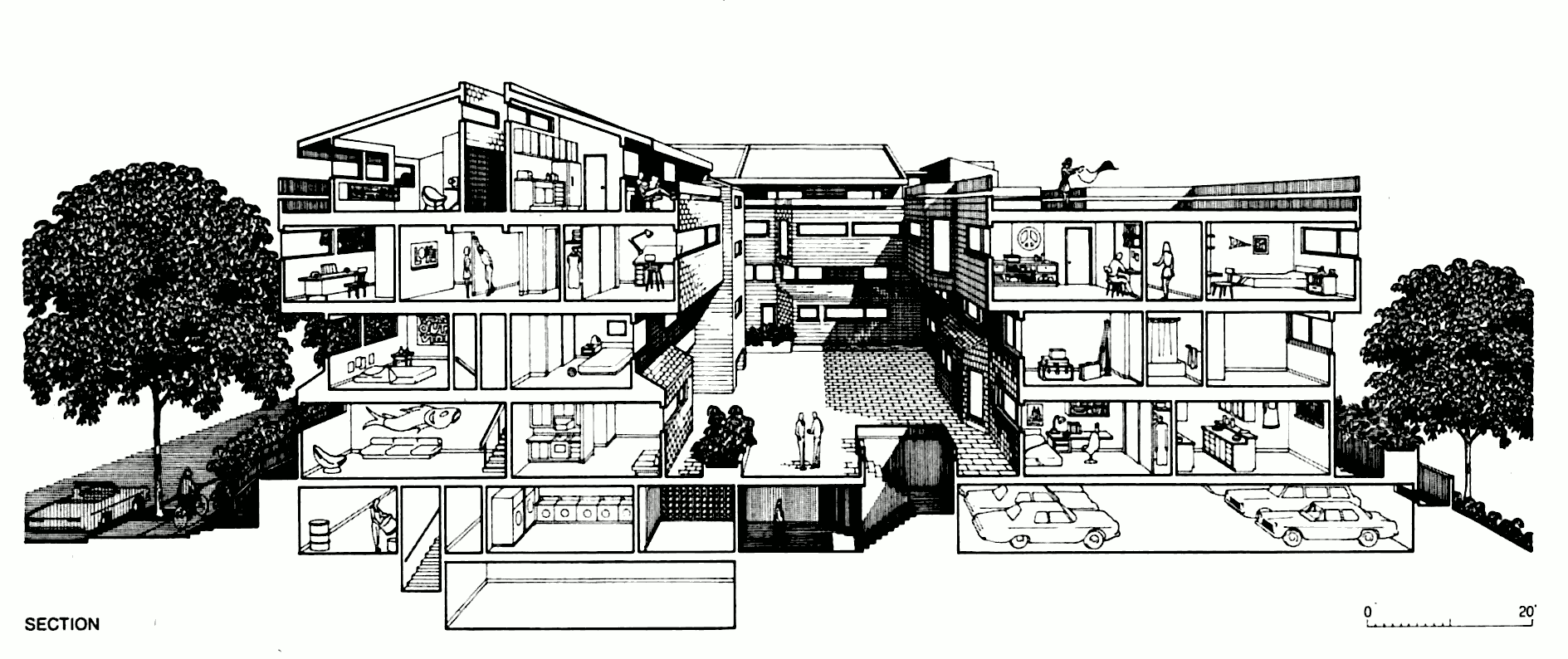
Anyone who has lived at Rochdale may appreciate its large bedrooms! This was by design:
"To the architects' surprise the students did not favor the usual arrangements of relatively small bedrooms and a large common room. Instead, they saw the bedrooms as combination sitting rooms..."[1:1]
Rochdale originally had a common kitchen and dining room, where communal meals were shared a few times a week![7]
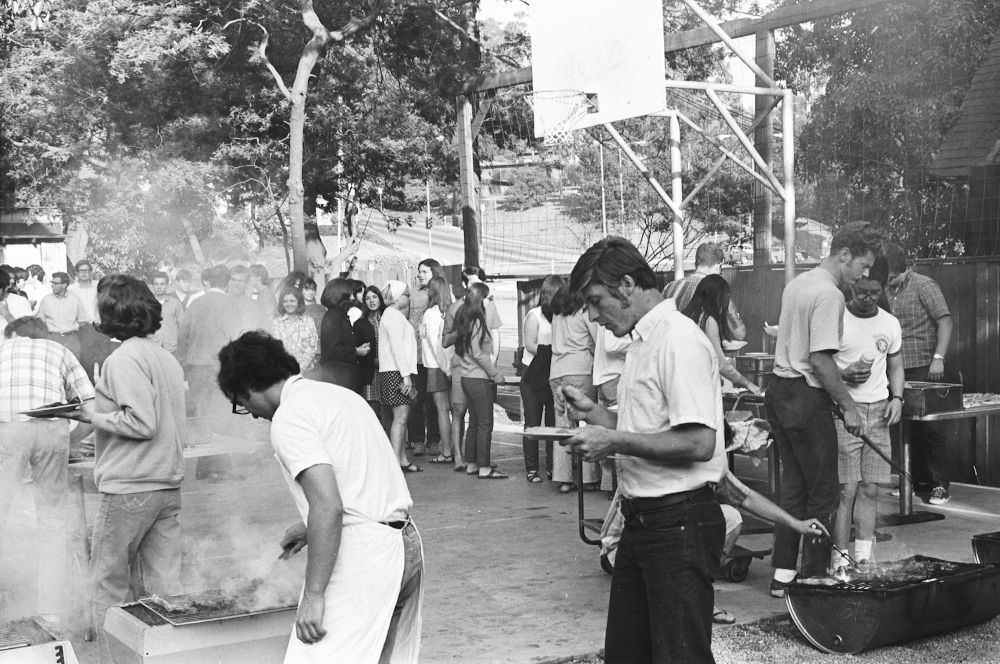
Save Rochdale! Campaign #
In 2012, the BSC's lease with UC Berkeley expired. Members doubted the prospects of renewing the lease on favorable terms, so they organized a campaign to Save Rochdale, or "Save the Roach!"
Members signed petitions, filmed videos, wore t-shirts around campus, and organized a local, vital campaign within the apartments to keep Rochdale under member control.[8]
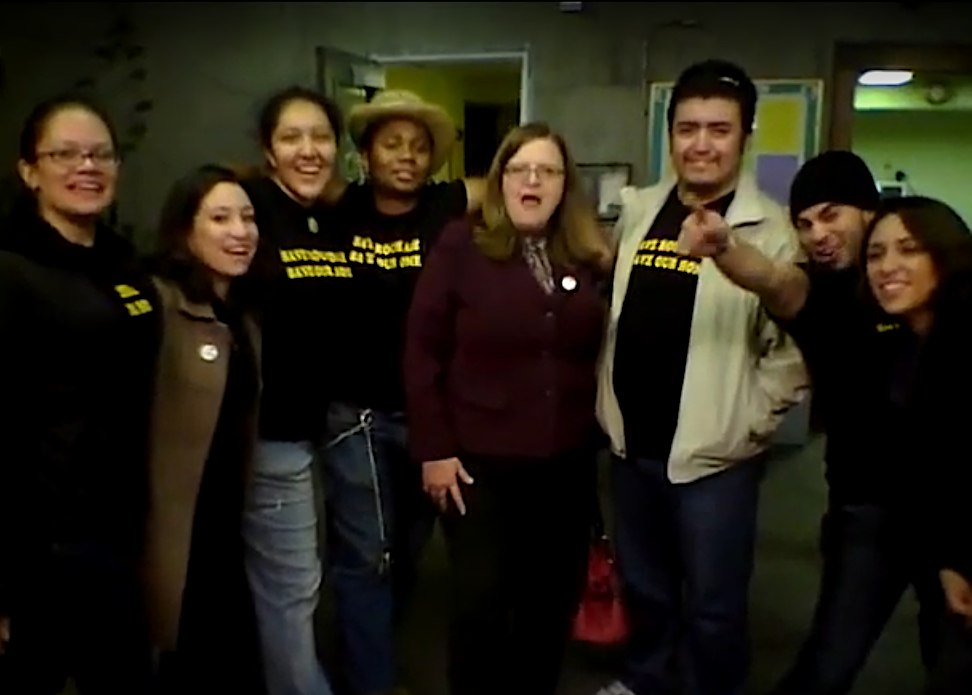
Co-opers Alex Ghenis and David Velasquez wrote in the Daily Cal:
Rochdale is the best option for students with disabilities. For students on Supplemental Security Income (SSI) who require a roll-in shower, Rochdale and neighboring (but more costly) Fenwick Weavers Village present the only realistic housing options near campus ... Furthermore, a vibrant community has formed at Rochdale that fosters activism and awareness. For example, approximately half of Latino student advocacy group Hermanos Unidos' leadership lives at Rochdale.[9]
The campaign attracted the support of groups such as Hermanas/Hermanos Unidos and Queer-Straight Alliance. Members collected thousands of signatures through an online petition.
Members held strategy brunches, and workshift was offered for some tasks related to the campaign. People living at Rochdale were all invited to schedule one-on-one meetings with UC officials.
As a result of this organizing, the BSC won a 10-year lease extension!
Expired Lease #
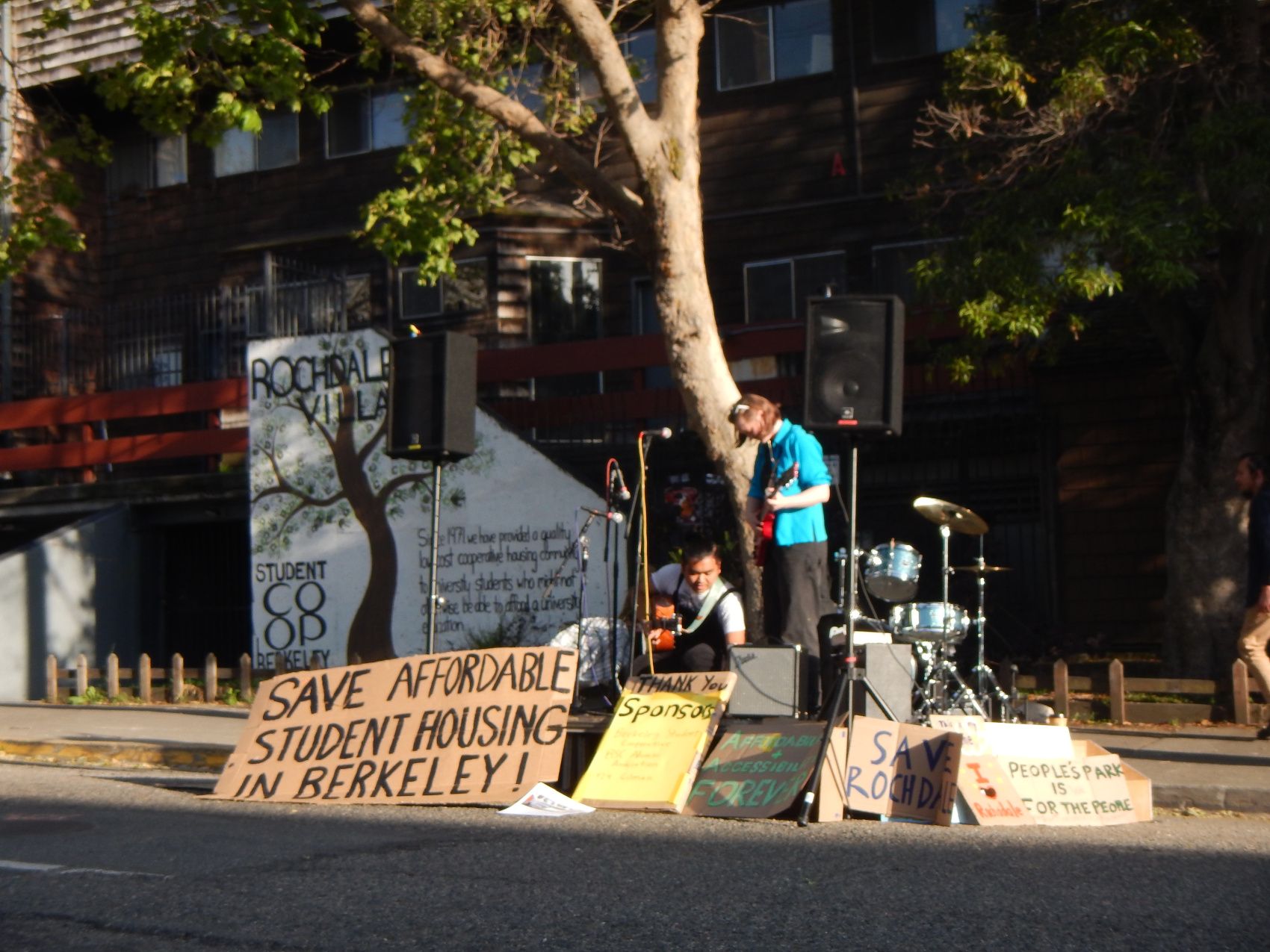
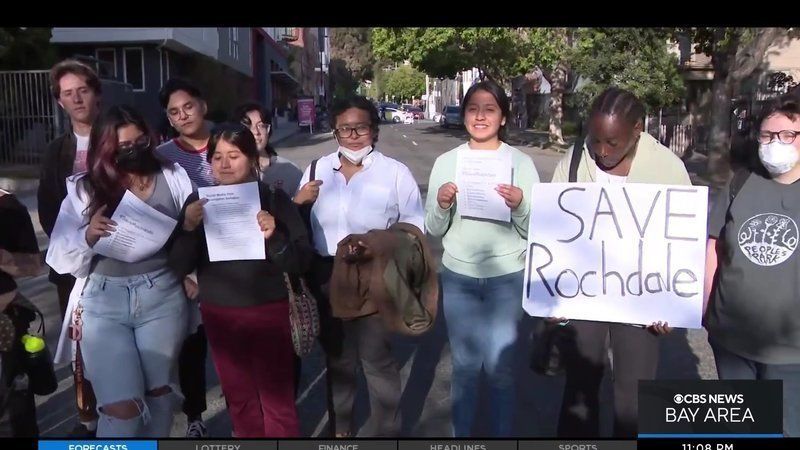
In 2021, the 10-year lease extension expired.
A BSC committee negotiated with UC Berkeley Capital Strategies regarding the future of Rochdale. UC Berkeley had demanded that the BSC pay for and immediately perform seismic retrofits on the buildings. The Interim Executive Director stated this would be an expensive, multi-year project.[10]
Following the block party, the BSC announced that "university decision-makers have expressed their support for transferring the land on a restricted deed basis, [as the] petition has demanded ... Given recent developments, the campaign may be entering a different phase, but it will never be over until the deed is done."[11]
Sally Woodbridge, "Berkeley Bravado", in Progressive Architecture, August 1975, Vol.56 (8), p. 48-51. ↩︎ ↩︎
"Regents to Vote on Apartment Plan", Nov. 18, 1969, in The Daily Californian ↩︎
"A building that's gone but still remembered," 26 March 1981, in The Berkeley Gazette ↩︎
Guy H. Lillian, III, Cheap Place to Live, in The Green Book, p. 98 ↩︎
Cheap Place to Live, p. 99 ↩︎
Cheap Place to Live, p. 100 ↩︎
Sarah Brady and Alfred Twu, "Rochdale Village Co-op Apartments, Berkeley" January 30, 2012, It's a Coop ↩︎
Alex Ghenis and David Velasquez (2009), "Rochdale: More than a Lease Issue", The Daily Californian ↩︎
Ricardo "Are" Gomez, "Big News", update on "Save Rochdale, Save Our Home: Trust Us With the Land!" petition, change.org. ↩︎